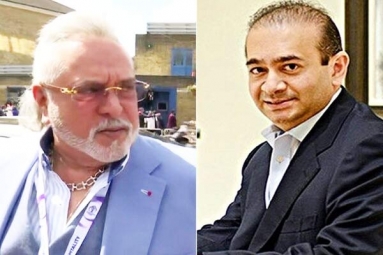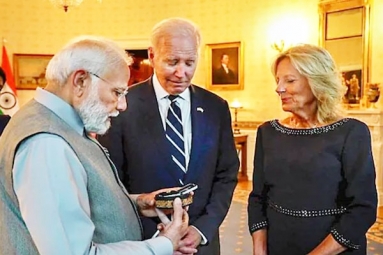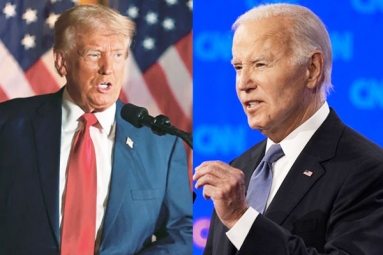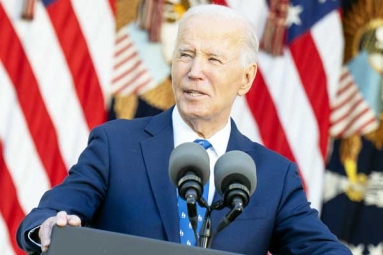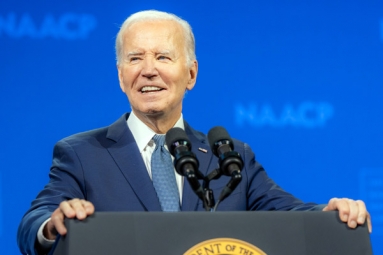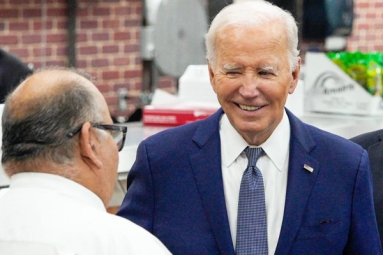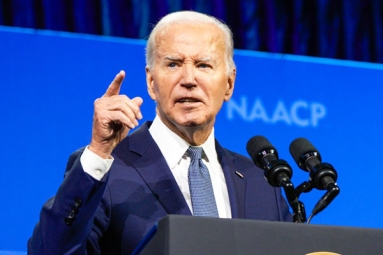
(Image source from: AP)
A young man with a bright future earned a college football scholarship, elated and optimistic. Sadly, a shoulder injury led him down a path of opioid dependence, causing him to lose focus on his life. Substance abuse is a prevalent issue in America, and this man's story holds significance. He was the nephew of a juror involved in the case of US President Joe Biden's son, Hunter Biden, who obtained a firearm during his own substance addiction struggles. Hunter Biden was found guilty of lying about his drug use on a gun purchase form in 2018, despite his legal team's argument that he was not using at the time. This case highlights the widespread impact of the drug addiction crisis in the US, where a Johns Hopkins report indicates that at least 32% of the population has experienced the loss of a loved one due to substance abuse. The trial process unveiled the profound impact of America's drug addiction epidemic. The court carefully selected a jury of 65 individuals, each with their own personal experiences and perspectives on this pressing issue. Many had witnessed loved ones grapple with the clutches of addiction, while others had succumbed to its devastating effects themselves. The jurors' stories shed light on the far-reaching consequences of this national crisis.
One juror shared the heartbreaking tale of a childhood friend lost to an overdose. Another potential juror, visibly emotional, recounted the struggles of their nephew and brother-in-law with drug addiction. A third individual revealed the ongoing battle of their own brother, now seeking recovery through rehabilitation. These poignant narratives reflect the alarming reality that approximately 32 percent of the U.S. adult population, or an estimated 82 million people, have been impacted by the scourge of addiction. The overdose epidemic has become a severe national crisis, as revealed by research from Johns Hopkins University. "This drug abuse crisis is a devastating national catastrophe," states Alene Kennedy-Hendricks, PhD, an assistant professor in the Department of Health Policy and Management at the Bloomberg School. "While countless American adults are grieving the loss of loved ones due to overdose, they may not receive the same level of attention as those who have lost someone to less stigmatized health problems."
The President's son's conviction could potentially shine a spotlight on the widespread issue of substance abuse in the United States. William C. Moyers, himself a former addict, now assists others in their recovery journeys. He asserts that Hunter Biden's experience resonates with many Americans, and he hopes this will shift the conversation towards recognizing addiction as a public health crisis, where recovery is indeed possible. Shaming famous individuals for their addiction can have the unintended consequence of silencing ordinary people facing similar challenges. Addiction can sometimes stem from difficult life events, as exemplified by Hunter Biden's own testimony about the impact of his uncle's passing. The families of American presidents often face intense scrutiny, especially when there are indications of substance-use issues. This is not an isolated occurrence, as Moyers points out that presidential families have long grappled with such matters.
Patty Davis, a former addict herself, eloquently captures the struggles faced by individuals like Hunter Biden. She acknowledges the tragic consequences that addiction can have, not only on the individual but also on their loved ones. As the daughter of esteemed political figures, Davis understands the intense public scrutiny and the lasting impact of one's mistakes. She emphasizes that those battling addiction are often defined by their past transgressions, rather than their journey towards recovery. Davis poignantly notes that "there are a lot of Hunter Bidens in this world," individuals who have become overwhelmed by their addiction, yearning for a chance to rebuild their lives. The data surrounding Hunter Biden's case, and the personal accounts of the jurors, shed light on the widespread nature of this issue in the United States. This highlights the need for a multifaceted approach, addressing addiction through policy, increased awareness, and the provision of comprehensive support systems for those seeking to overcome their struggles.









